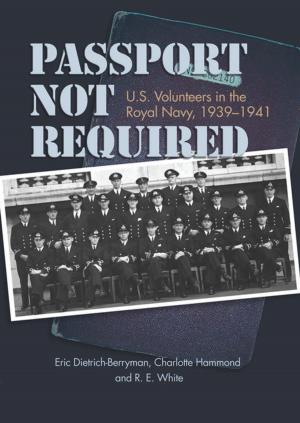| Author: | David Childs | ISBN: | 9781612519364 |
| Publisher: | Naval Institute Press | Publication: | January 15, 2015 |
| Imprint: | Naval Institute Press | Language: | English |
| Author: | David Childs |
| ISBN: | 9781612519364 |
| Publisher: | Naval Institute Press |
| Publication: | January 15, 2015 |
| Imprint: | Naval Institute Press |
| Language: | English |
For this reason the rule of law at sea was arbitrary and almost non-existent. Even those, such as the Lord Admiral and the Court of Admiralty, who were tasked with policing the seas and eliminating piracy, managed their own pirate fleets. While honest merchants could rail and protest, the value to the exchequer of this dubious income was enormous, often equaling, on an annual basis, the input from all other sources such as taxation or customs dues. Moreover, the practice of piracy taught English seamen how to fight and, when the nation was at its greatest peril, in 1588, it was pirates who kept the Spanish Armada away from invading the English coast.
Charles Howard, commander of the British forces, Richard Grenville, Walter Raleigh and Francis Drake, were all pirates who became admirals all for England’s sake’, and were well rewarded by the Queen for their exploits. This highly original book argues that the deeply ingrained piratical and self-interested approach to naval warfare by these English captains almost allowed the Armada to succeed. A radical reassessment of Elizabethan maritime history, Pirate Nation makes this and a number of other startling revelations about the myth and the reality of Elizabethan naval policy. A highly readable work, this radical reappraisal of Elizabethan maritime practice offers provocative insights about some of the most cherished events in British history.
For this reason the rule of law at sea was arbitrary and almost non-existent. Even those, such as the Lord Admiral and the Court of Admiralty, who were tasked with policing the seas and eliminating piracy, managed their own pirate fleets. While honest merchants could rail and protest, the value to the exchequer of this dubious income was enormous, often equaling, on an annual basis, the input from all other sources such as taxation or customs dues. Moreover, the practice of piracy taught English seamen how to fight and, when the nation was at its greatest peril, in 1588, it was pirates who kept the Spanish Armada away from invading the English coast.
Charles Howard, commander of the British forces, Richard Grenville, Walter Raleigh and Francis Drake, were all pirates who became admirals all for England’s sake’, and were well rewarded by the Queen for their exploits. This highly original book argues that the deeply ingrained piratical and self-interested approach to naval warfare by these English captains almost allowed the Armada to succeed. A radical reassessment of Elizabethan maritime history, Pirate Nation makes this and a number of other startling revelations about the myth and the reality of Elizabethan naval policy. A highly readable work, this radical reappraisal of Elizabethan maritime practice offers provocative insights about some of the most cherished events in British history.















